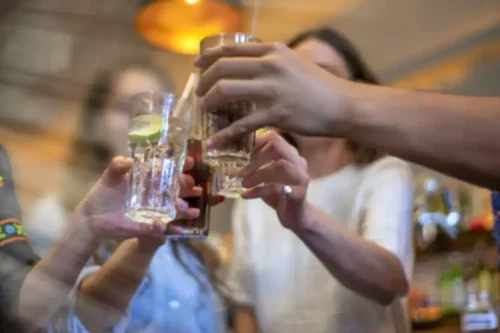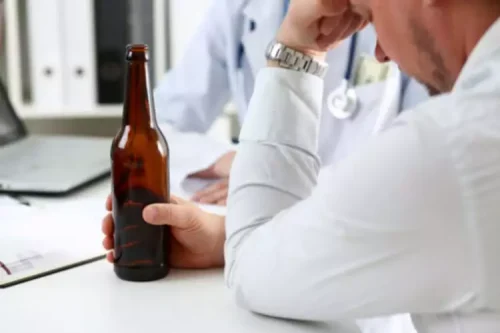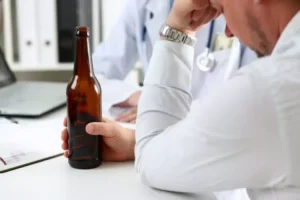
Sleep apnea is a common sleep disorder in which breathing repeatedly stops and starts during sleep when the airways are partially or fully blocked. Alcohol relaxes upper airway muscles, increasing the likelihood of the airways collapsing and more sleep apnea episodes, leading to more sleep disruptions. Many factors can interfere with a good night’s sleep — from work stress and family responsibilities to illnesses. Ultimately it can make some people more vulnerable to sleep apnea or exacerbate the symptoms for those who already have it. Changing habits takes time, and there might be setbacks along the way. Be patient with yourself and recognize that each day is a new opportunity to reduce your alcohol intake and improve your sleep.
What are some alternative ways to unwind in the evening without alcohol?
- Select an option(s) below that best describes you to get communication that matches your interests.
- Heavy drinking can give you a hangover, sure, but part of the reason you feel so sluggish and worn out after a night of drinking is because you get such terrible sleep.
- That’s because alcohol depresses the central nervous system.
- Doctors have found that on its own, alcohol can narrow your upper airway and lead to sleep apnea problems, even if you have never had them before.
- These can happen during arousals from rapid eye movement (REM) sleep or non-rapid eye movement (NREM) sleep.
- Instead of deep, restful sleep, you’re more likely to find nighttime awakenings, lower sleep quality, and reduced sleep efficiency at the bottom of your glass.
Alcohol can impact sleep-wake cycles, making it harder to stick to a regular sleep schedule. Over time, this can contribute to chronic sleep deprivation, affecting your mood, energy levels, and overall health. When you’re in the first two stages, you’re in “light sleep.” When you’re in the third stage, you’re in “deep sleep.” And the fourth stage is your “vivid,” or dream, stage. While every person’s individual sleep cycle varies, it’s generally true that each of us goes through four to six rounds of it. Each cycle lasts around 90 minutes total, which adds up to between six and nine hours of sleep.

Health Challenges
- This article discusses the science behind why alcohol makes you sleepy, how to minimize drowsiness while drinking, and the broader effects alcohol has on your sleep and overall health.
- Shaking this addiction and learning to sleep without alcohol can be difficult.
- Having a drink or two with dinner or when you’re out with friends is still a big part of our culture in many parts of the world.
- The topic of alcohol and sleep is of special interest to researchers lately, with nearly 600 studies2 published on it so far this year.
- Alcohol consumption can lead to a lack of sufficient quality sleep, which can seriously affect cognitive functions such as learning and memory.
Alcohol is the most common sleep aid—at least 20 percent of American adults rely on it for help falling asleep. But the truth is, drinking regularly—even moderate drinking—is much more likely to interfere with your sleep than to assist it. With help from experienced professionals, substance use and co-occurring insomnia can be treated effectively. If you believe your drinking may be problematic, you may learn about the differences between casual and problematic drinking by taking aself-assessment.
How alcohol can affect sleep quality: 6 symptoms
Research shows that it can increase the risk of certain sleep disorders and parasomnias while exacerbating the symptoms of others. While most people think REM sleep is the deepest stage of sleep, it’s actually the lightest sleep stage next to N1. The N3 sleep stage, where we experience slow-wave sleep, is the deepest stage of sleep. It’s a common belief that an alcoholic drink in the evening can relax the mind and body, making it easier to fall asleep. Having a drink or two with dinner or when you’re out with friends is still a big part of our culture in many parts of the world.
This is precisely why many people reach for alcohol as a way to help them relax in the evening while also helping them fall asleep. Keep in mind that for people with AUD, sleeping issues may persist through the withdrawal phase. That said, less research has focused on how low to moderate drinking—1-2 drinks per night, for example—impacts sleep. We still does alcohol help you sleep have more to learn on this topic, but it does seem that any amount of alcohol can throw off sleep architecture. That’s because alcohol interferes with the ability to stay asleep and to get high-quality, deep sleep.
Adverse Effects of Disrupted Sleep
Up to 40% of the general population experiences insomnia, while as many as72% of people with an alcohol use disorder may have the condition. The duration of these sleep stages can vary by person and by age. Throughout the night, your brain will cycle through all of the sleep stages multiple times to give you a good night’s rest. Sleep disorders like insomnia can co-occur with alcohol abuse, and treating insomnia can improve a person’s sleep quality while in recovery. It could cause sleep disturbances long after you’ve drunk it.
- Some people in recovery may try tostart drinking againto improve their sleep.
- Eye movement increases, often seeming to jerk around, breathing increases and can be irregular and shallow, blood pressure increases and dreams begin.
- This sleep cycle disruption is what causes the person to feel tired and “fuzzy” the next day and can lead to further sleep issues, such asinsomniaoralcohol addictionover time.
Everyone’s tolerance is different, so what’s moderate for one person may still be enough to disrupt someone else’s sleep. Before we look at the effects of alcohol on sleep in detail, here’s the basic bottom line. The more you drink, and the closer your drinking is to bedtime, the more it will negatively impact your sleep.

Why Does Alcohol Make You Sleepy?

Drinking alcohol might help you fall asleep—but it won’t keep you there. And the negative effects of interrupted sleep can add up over time, leading to other unwanted health concerns including chronic pain. Researchers have found that the sedative effect only lasts for the first part of the night, though. People who consume alcohol before bed don’t wake up as often during the first few hours of sleep.
Нет Ответов